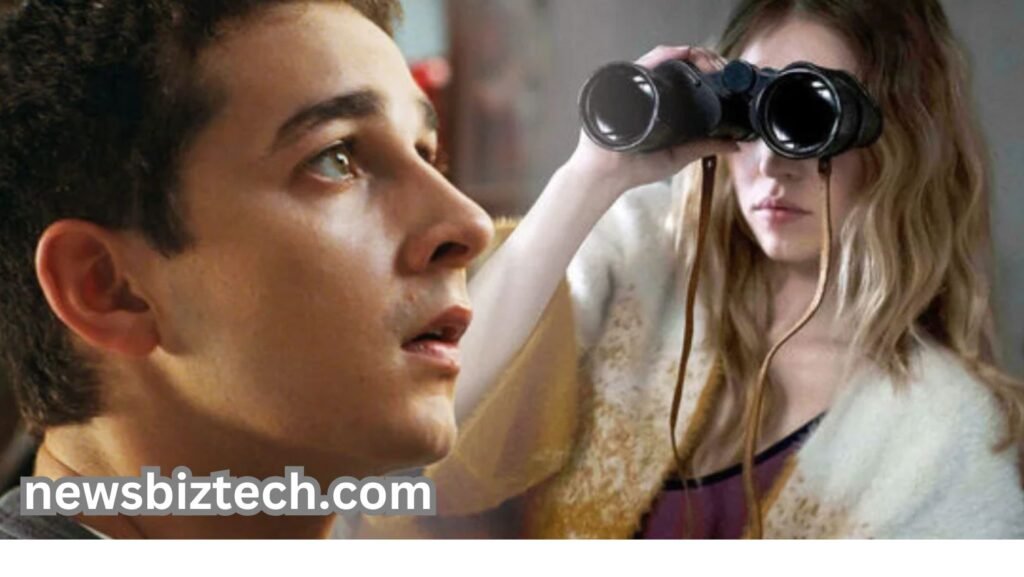Reality and sensationalism have become fuzzy in today’s world. Since the invention of reality TV, which people refer to as “more trash TV no it’s news Disturbia” it appears that people have a taste for more rants than news. Shows like Too Hot to Handle and The Bachelor attract millions of viewers by using overdrawn melodrama to cultivate a discourse that consistently mauled reality and fiction. This trend, sometimes popularly known as “news Disturbia,” raises serious questions regarding societal influence by such types of media consumption-a mix of sensational entertainment and reality-but possibly altering the view the public has of real-world issues.
Key Takeaways:
- Reality TV Popularity: Shows like The Bachelor, Too Hot to Handle, and Love is Blind have skyrocketed in popularity, driven by their dramatic appeal and escapism.
- Media Impact: Trash TV shapes public perceptions, sometimes negatively affecting societal norms and values, especially for younger audiences.
- Escapism and Reality: Viewers often use these shows as an escape from daily stress, yet the portrayal of unrealistic behaviors can blur lines between entertainment and reality.
- Cultural Implications: These shows often reinforce stereotypes, such as promoting unhealthy gender dynamics or superficial lifestyles.
- Caution for Viewers: While indulging in trash TV can be fun, it’s important to be aware of the potential impacts it might have on personal views and social behavior.
Also Learn More: more trash tv no it’s news disturbia
Trash TV: Why Are We Hooke?
Trash TV is not a new concept, but in the digital age, it has expanded immensely. In taking advantage of such opportunities, platforms like Netflix and Hulu have gained significant mileage in the creation of reality shows packed full of drama, conflicts, and at times even scripted elements intended to keep people glued to the screen. Research studies indicate that reality TV has become a genre of high consumption; it is estimated that 60% of TV watchers view these shows regularly.
What is perhaps operating psychologically behind this need is the human trend of escapism. People seek refuge in such shows as a way to find solace away from the stress of reality, gelling within the disorderly lives depicted on television. This “more trash tv no it’s news Disturbia” effect invites viewers since they would be given a temporary break from real life and also be subject to discussions about the conduct embrace by the characters.
| Popular Reality Shows | Year of First Release | Estimated Global Audience |
|---|---|---|
| The Bachelor | 2002 | 7.5 million viewers per episode |
| Too Hot to Handle | 2020 | 51 million in the first season |
| Love is Blind | 2020 | 30 million in the first month |

The Escapism Factor: A Psychological Dive
Shows like Too Hot to Handle feature absurd tasks that challenge the participants, holding viewers glued to their screens with dramatic plot twists and cliffhangers. What viewers find more appealing about trash TV is the fact that it gives viewers a break from reality. According to psychologists, reality TV is a way to help viewers escape from all stories far removed from their daily activities. One observes the way people deal with contrived situations and glee in the misery of others, almost a schadenfreude — pleasure at other people’s problems.
Indulgence, however, does not come free. Scientists argue that repeated viewing of dramatized representations impacts one’s perception of relationships and social roles, especially for young minds who may not know the difference between what is real and what is not.
The media mix between news and entertainment
The rise in news combined with entertainment has resulted in the so-called “more trash tv no it’s news Disturbia,” where, quite literally, the lines separating actual reporting from sensationalist storytelling are blurred. Many of today’s news organizations draw on reality TV in news and hence on dramatic headlines, and sensational stories to keep the audience entertained rather than to report the news accurately. This seems to raise questions about the loss of journalistic integrity, the growing inability of viewers to decipher news content from entertainment.
According to statistics, over half of Americans are of the opinion that mainstream media focuses more on sensational stories rather than reporting the truth. This has consequently led to general distrust toward traditional news channels, forcing their audience into other forms of media that may or may not practice professionalism.
Also Learn More: more trash tv no it’s news disturbia
Trash TV: A Cultural Artifact
Trash TV does not seem like it is just entertainment but has some deeper and more profound influence on the very social structures of people. They often depict over-the-top and unrealistic behaviors that tend to sway the viewer’s expectations and attitudes. For instance, The Bachelor show, a type of dating show, tends to perpetuate the idea that attaining romance has much to do with physical appearance and superficial charm. Shows about wealth and luxury, like Keeping Up with the Kardashians, tend to instill unrealistic desires and materialistic values.
| Negative Impacts of Trash TV | Description |
|---|---|
| Reinforces Stereotypes | Promotes gender and racial stereotypes, often amplifying biases |
| Influences Perceptions of Relationships | Unrealistic portrayal of romantic relationships |
| Encourages Materialism | Emphasizes wealth, luxury, and superficial success |

Alarming Trends: What the Numbers Reveal
The study, which was conducted in 2022, discovered that 70 percent of the habitual viewers of reality TV programs believe that reality TV portrays a reality while at the same time knowing that they only know some of what takes place is staged or manipulated. This perception can translate into harsh realities, as these viewers might assimilate as norms the behavior and values on the screen. For example, reality shows like Love Island or Jersey Shore are often blamed to be promoting such toxic behaviors as envy, violence, and infidelity as something desirable or fine to have.
Moreover, the greater quantity of conflict and drama within a reality TV series could dull the viewers to these negative behaviors. The greater exposure to even more dramatic scenes of argumentation and confrontation can lead to the possibilities of normalizing similar interactions with others for those viewers, which may eventually change how they relate with others when such conflicts are up in real life.
FAQs

What is trash TV?
Trash TV refers to reality TV shows that frequently attract criticism due to the poor quality of content, sensationalism, and excessive dramatic emphasis in them. These programs are usually created to attract viewers through personal conflicts and behaviors that are almost or completely staged.
Why do viewers watch trash television?
They watch trash television for entertainment and as a way of getting out of their reality for some time. Allows them to engage with dramatic scenes on the screen which are normally unrealistic.
How does trash TV modulate viewers’ perceptions of what is real?
Viewed trash TV may obscure the line between reality and entertainment so some viewers adopt it as realistic or desirable. Exaggerated set of behaviors and values from within the trashy entertainment. In the process, their perceptions concerning social norms and relationships change.
Do reality shows have scripts?
Even though they claim to be unscripte, reality TV shows often feature script elements or are edit to make what happens more exciting and appealing to an audience. Producers sometimes work situations into increasingly interesting scenarios.
What are the Side Effects of Overindulgence in Trash TV?
Increased indulgence in trash TV may strengthen negative stereotypes, poor behavior, and the domestication of reality.
How has trash TV impacted mainstream media?
Trash TV has affected mainstream media by bringing sensationalism into news reporting. Aspect which makes it increasingly hard for viewers to distinguish fact from fiction in news reporting, which often is termed “news Disturbia.”
Conclusion
Trash TV is entertaining and will attract audiences through drama. Exciting plotlines; however, this should not blind one to its potential effects on societal values and individual perceptions. The growing “news Disturbia,” where entertainment bleeds into actual news. This is creating problems for traditional media in correctly disseminating factual and unbiased information. As a consumer, it needs to be viewe with a critical eye while acknowledging the urge of such content to make one escape but aware of its overreach on our worldview and behavior.

